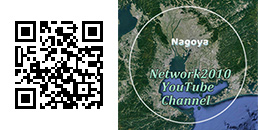【Video】Atuta Shrine Bugakucourt dances and music
- Return to INDEX
- Toka Shinji January 11
- Hosha Shinji January 15
- Kinen-sai March 17
- Bugaku May 1
- Eyoudo Shinji May 4
- Shinyotogyo Shinji May 5
- Atsuta Shrine Festival June 5
Bugaku is court music which consists of traditional Japanese dance and music. It is classified into such as two kinds, "Togaku" which descended from the China continent and "Komagaku" which descended from the Korean Peninsula and the kingdom of Balhae. Music and dance of India and Vietnam is also contained in "Togaku".
Enbu
Enbu is performed at the beginning of Bugaku(music and dance) in order to exorcise the stage. It is reported that the situation of King Wu of Zhou (about BC 1050) prayed for the victory to gods.
Manzairaku
Manzairaku is performed with "Taiheraku" at the time of a happy event.
Engiraku
Fujiwara Tadafusa built music and Imperial prince Atsuzane made dancing in Engi 8(908) of the reign of Emperor Daigo.
Kishunraku
It is reported that this Bugaku is the work of Shukuko of Chen China (557-589) or Emperor Yang of Sui of Sui China (581-618). This music and dance can be performing, when a shrine is relocated .
Shikite
The ambassador of the kingdom of Balhae visited Japan at the Heian period (794-1185). It is told that he wished visiting again and this music was made.
Kocho
It is reported that when Uda retired emperor was seeing a child's sumo wrestling in Engi 8(906), Fujiwara Tadafusa built music and Imperial prince Atsuzane made dance. This lovely dancing expresses appearance that butterflies fly in quest of flowers.
Genjoraku
It is reported that Emperor Xuan Zong of the Tang dynasty(618-907) ordered making this work after he suppressed the rebellion, or a man of western regions of China with the custom of eating a snake expressed the appearance when he found a snake and was pleased.
Batou
Butetsu was a priest of the country, Rinyu which suited the Indochinese Peninsula southeast part. . It is told that when Butetsu visited Japan in Tempyou era (729-749), he descended this music and dance. The child who lost his father attacked by the fierce animal went into the mountain and achieved the father's revenge. It is told that this Bugaku Batou is expressing that situation.
Chogeishi
Chogeishi is performed by the last of Bugakucourt dances and music. There is no dancing at the performance.
Photo
-

Enbu
-

Enbu
-

Manzairaku
-

Manzairaku
-

Engiraku
-

Engiraku
-

Kishunraku
-

Shikite
-

Kocho
-

Kocho
-

Genjoraku
-

Genjoraku
-

Batou
-

Batou
-

Chogeishi
-

Chogeishi


